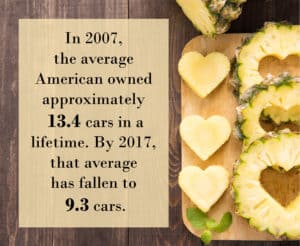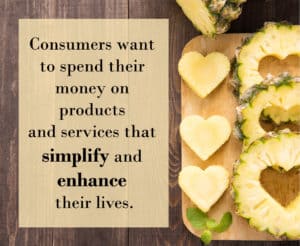Love is in the air this month. You could say that today’s sharing economy is teaching us all to love a little more. Of course, for merchants across all industries, there’s little love for the new sharing model. Consumers no longer have to commit to big purchases like cars, vacation homes, power tools, or bikes. You name it, it can and is being shared.
In 2018, more companies are seeing the golden opportunities presented by this sharing way of life. And the sharing economy is, at it’s core, a misleading title, since the sharing always comes for a fee. In other words, there’s money to be made if you’re willing to adopt a new model.

Commitment Phobia or the New Economy?
Many people blame a lack of commitment for the rise of sharing-centered commerce. Consumers aren’t willing to commit to buying products. And since the rental model is a widely accessible option, they don’t need to.
Rather than buying limited-use tools for a single project, you can look on sites like Rentah and pay to borrow the tools needed for the day. For people with unused possessions, renting allows them to hold onto the item rather than trying to sell it off, while still making a profit.
Driving the Sharing Economy
As the sharing model continues to grow, companies across all industries have shifted their strategy. The car industry is a prime example. In 2007, the average American owned approximately 13.4 cars over the course of their lifetime. By 2017, that average has fallen to 9.3 cars.

Between 2008’s recession and the advent of Uber, Lyft, and other car-sharing services, owning a car has become less appealing. As a result, car companies have shifted their focus towards leasing.
But leasing a car is still a hefty commitment. As a result, Volvo and other companies have begun offering low commitment plans to “subscribe” to a car.
Upon launch this spring, Volvo’s new subscription program combines a traditional lease model with a new “care” concept. The aptly named “Care by Volvo” program allows customers to sign up for a 24-month term with a $500 deposit and monthly payments of $600 to $700. The “care” portion is what sets this model apart.
“It’s an alternative to the traditional model,” Volvo’s USA’s Director of Mobility Solutions Peter Wexler told PYMTS. “Consumers subscribe to Volvo. There’s no haggling, just a fixed price with one monthly payment that includes insurance, maintenance, tire and wheel insurance and replacement of parts that wear out, like windshield wipers and tires. The lease covers 15,000 miles a year.”
This plan, and countless others like it across a host of industries, is capitalizing on the consumer desire for simplicity. Commitment is not the enemy; complication is. By allowing consumers to have a car with everything other than gas rolled into one monthly package, Volvo is changing the game by streamlining it.
Consumers are willing to part with their cash. They just want to spend it on products and services that simplify and enhance their lives.
Subscriptions: Matches Made in Heaven

In this same spirit, the subscription model is a perfect companion to the sharing economy. For the products consumers can’t rent, like beauty products, pet supplies, etc., subscriptions provide the same level of ease. Consumers can determine what products they want, how often they want them, and rely on a regular delivery without a second thought.
Amazon allows subscriptions across hundreds of products, many of which come at a discount when you subscribe. There are also hundreds of subscription box services tailored to every need and interest. From razors and beauty products to snacks and pet supplies, if you can think of a need, there’s a subscription available.
Subscriptions also provide consumers with an even lower commitment option than the sharing model. Want to drive a Porsche? There’s a subscription for that. You can drive it for a few days, or a few months, with the option to lease or purchase if you fall in love.
Subscriptions also work well with the current push for experiences above possessions. MoviePass has been extremely successful at getting people to leave the comfort of their couch to go see movies in theater by offering unlimited movie tickets for one lower, monthly subscription.
Bottom Line
Why does any of this matter to you? As the subscription/sharing model continues to expand, its impact will be seen across all industries. Consumers have come to expect the option of setting up regular, interval payments, rather than receiving individual invoices. This means that to stay competitive, your business needs to be equipped to handle these demands.
Not sure where to start? Get in touch today! Pineapple has all of the payment solutions your company needs to stay competitive, in-store, online, and anywhere else your consumers may be!

